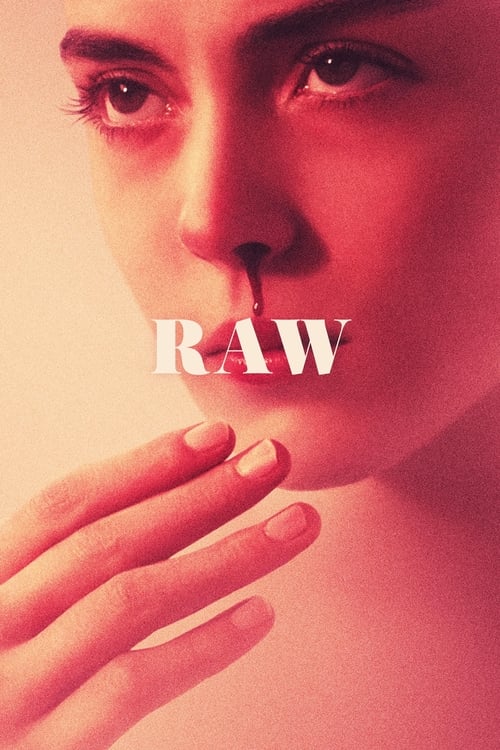Raw is the feature debut of French director Julia Ducournau. It is the story of young, sheltered Justine’s experiences as a first-year veterinary student. She’s unprepared for the bizarre hazing rituals, indifferent faculty, abundant alcohol, and sexual libertinism she encounters. Her elder sister Alexia provides useful help only sometimes and often sides with the upperclassmen.
She is also unprepared to eat meat, which — raised vegetarian — she is reluctant to do. But having tasted it, she develops a strange compulsion to eat it more and more, even trying to shoplift a hamburger patty from the cafeteria line. Before too long she’s trying to contain both her lust and her bloodlust for her gay suite-mate Adrien, and behaving bizarrely indeed when she’s had too much alcohol.

Oh, that’s what it’s got in its pocketses.
Some critics have complained that Raw is “lurid.” It didn’t strike me that way the first time through, but since I have been eating a steady diet of giallo and horror movies over the past few years, my bar is probably set a little higher than your average Cannes critic. There is a lot of blood. I am not debating that. But Ducournau treats both the gore and other unpleasantness like a documentarian. The camera veers into exploitative territory only rarely.
The cinematography itself is often unsettling. Ruben Impens, the director of photography, seems to favor either tight closeups emphasizing claustrophobia, or long-distance shots which can leave you feeling exposed. In several scenes, you’re expected to squint to see tiny movement in the distance. Is that person in the distance wearing a red shirt or are they covered in blood? That’s a more pressing question in this film than it is in others.

Seriously. WTF.
Lurid or not, Raw won the Sutherland Award at the London Film Festival in 2016, and Garance Marillier won the the César Award for Most Promising Actress for her portrail of Justine. She does this with a sort of shell-shocked, puzzled air, and even among her peers she seems young.
Horror films often turn to cannibalism to tell a coming-of-age tale, in part because young women are expected to be sexually passive. There’s a certain satisfaction with seeing the girl turn cannibal on male pickup artists or rapists. Raw has its fair share, but men play a peripheral role here. The most present male character, Adrien, is at least as confused about his sexuality as Justine is about her own, and not inclined to put any moves on Justine to begin with.

It seems Ducournau’s focus is more on the institutional and systematized abuse. The hazing is grotesque (and certainly unsanitary) but apparently condoned by the school’s faculty; the first-years attend class and meals in surgical gowns drenched in blood. When Justine protests about having to eat meat as part of an initiation rite, Alexis takes her down a hallway adorned with group photos of first-years covered in blood. Many, many pictures down there’s a photo of her own parents. Far from excusing the behavior, the message here seems clear. Whatever happens next (it’s a lot), her parents are complicit.
Also worth watching is Justine and Alexis’ complicated relationship, which seems at turns both protective and abusive. Their lives of privilege and wealth have come at a cost. Alexis is already aware, but Justine is figuring it out.

